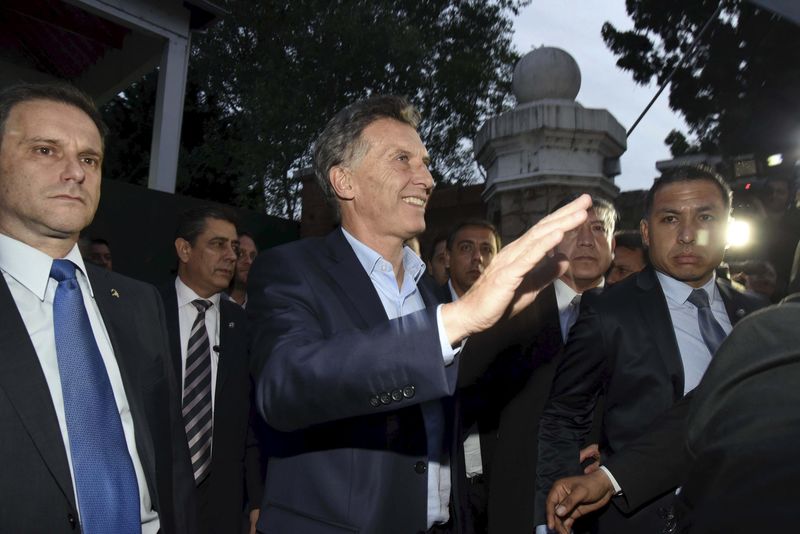By Jorge Otaola and Sarah Marsh
BUENOS AIRES (Reuters) - Argentine President-elect Mauricio Macri will name former central bank chief Alfonso Prat-Gay as his finance minister tasked with rebooting the stalled economy, a close adviser said on Wednesday.
Macri, who won Sunday's presidential election, has promised to end more than a decade of free-spending leftist populism and lift a wall of protectionist trade and currency controls that have stunted foreign investment and hobbled growth.
But the challenges will be huge. The central bank is running low on dollars, the peso currency is overvalued, inflation is in double digits and the fiscal deficit is estimated at about 7 percent of gross domestic product.
Asked in an interview on Radio Latina if Prat-Gay would be the next finance minister, Francisco Cabrera, who heads Macri's Pensar policy think tank, replied: "Yes, that's right."
Prat-Gay, a 50-year-old economist who started his career in private banking, climbed through the ranks at JP Morgan in the investment bank's New York and London offices to become its global head of foreign-exchange research in the late 1990s.
In 2002, at the age of 37, Prat-Gay was appointed president of Argentina's central bank as the South American country hauled itself out of a devastating economic depression that plunged millions of Argentines into poverty.
He won widespread acclaim for swiftly taming runaway inflation and championing central bank independence. Prat-Gay left the bank after losing the backing of then-president Nestor Kirchner, a leftist Peronist who wanted more control over the regulator and monetary policymaking.
In the closing stages of the presidential race, Prat-Gay, one of Macri's leading economic advisors, spoke out in favour of unifying Argentina's multi-tiered exchange rate.
He acknowledged this would mean a devaluation of the peso's official rate but said it would not fall below the black market rate that many Argentines wanting to buy dollars are forced to turn to because of capital controls.
"There are no reserves left, and the capital controls don't make sense," Prat-Gay said earlier this month. "They just destroyed local economies, exports and a good part of industry."

In Wednesday's interview, Cabrera also said he himself had been tapped to head the ministry of production and development.